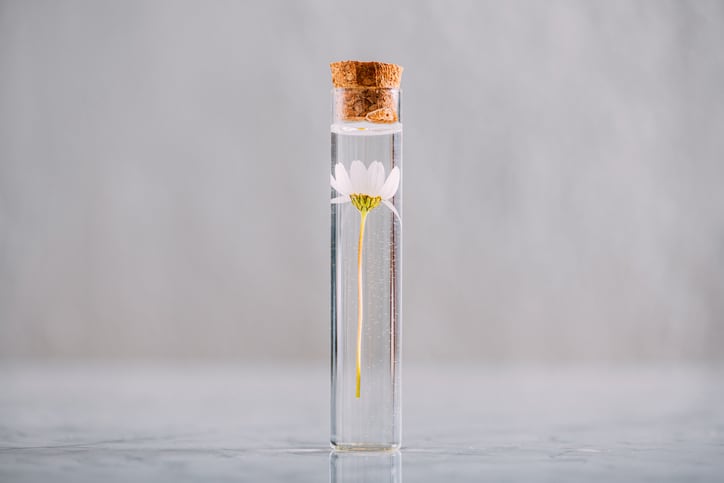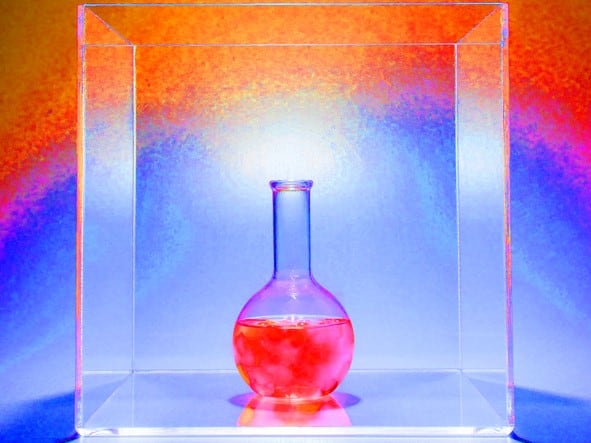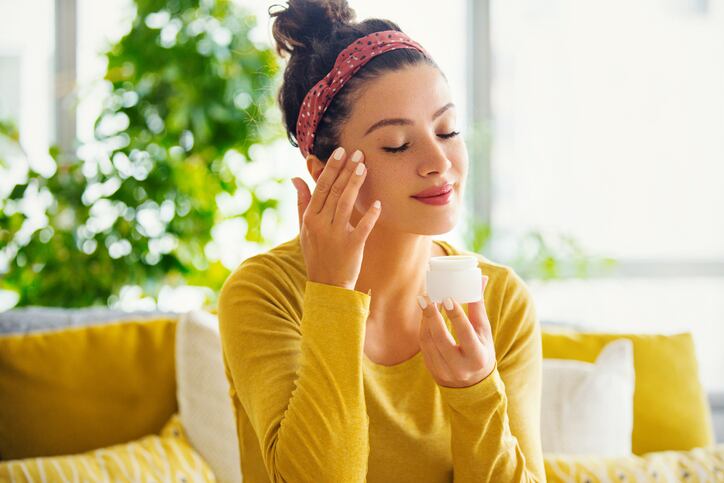Back in December 2019, the European Commission (EC) embarked on its green agenda with the unveiling of its European Green Deal – a multifaceted patchwork of strategies and legislation aimed at driving the European Union towards climate-neutrality by 2050. Under the Deal, industries were set to receive funding and support to drive forward sustainable actions and innovations with an estimated €1 trillion pledged as part of a ‘green investment wave’.
For the fragrance industry, like many other sectors, attention had now therefore sharpened on sustainability and green innovation. Though this topic had long been on the agenda in fragrances, according to Hans Holger Gliewe, chairman of the International Fragrance Association (IFRA).
‘Nature is our source of inspiration’
“For the last decade, sustainability has been at the core of our industry and also responsible for the growth of our industry,” Gliewe told attendees at a virtual roundtable during the European Commission’s annual flagship event EU Industry Days.
“Nature is our source of inspiration, for fragrance creation and fragrance manufacturing, and as a sector we have therefore been a frontrunner to developing practices which could define and guide companies towards sustainability, taking a life cycle approach,” he said.
Under the IFRA Code of Practice and its voluntary framework The Sustainability Charter, he said the global fragrance industry already followed strict guidelines on the safe development of fragrances whilst respecting the natural environment in the process. Strategies under the European Green Deal, however, would add to this and IFRA was in full support of engaging with these plans, he said.
‘It’s important to talk about environmental protection’
So, as perfume creators, fragrance manufacturers and its global network of suppliers pushed forward with the green agenda, what exactly would the future look like for sustainable fragrance creation? And what needed to happen on a larger scale?
“It’s important to talk about environmental protection, because we try to mimic nature in our perfumes, and we use nature,” said Calice Becker, president of the International Society of Perfume Creators (SIPC) and director of Givaudan’s Perfumery School.
Industry must remain focused on “the renewal of nature”, Becker told roundtable attendees, and this should be done so “virtuously”.
“We should make sure nature is properly renewed, even before we collect it for making perfumes. We want to work in harmony with nature. Over the years, we have enjoyed ancestral skills and knowledge that is very much rooted in our tradition, but it’s important to adopt a more ethical and eco-responsible approach.”
‘We have so many new exciting technologies’
Asked what level of promise technologies offered in driving the future of sustainable fragrance innovation, Becker told CosmeticsDesign-Europe: “I think the first most exciting thing is we have so many new exciting technologies; this is absolutely remarkable. And these new technologies help us create in a more responsible way. We can predict if the product is biodegradable; we can predict the carbon footprint of the product much better, and this is something that completely changed our way of creating perfumes.”
Perfumers were already working with many of these technologies, tools and software, she said, to map environmental profiles of ingredients, for example, or identify whether they came from recycled feedstocks. Artificial Intelligence (AI) was also enabling quicker and simpler identification of suitable natural alternatives too, she said, limiting the need for extensive testing. More widely in fragrance, AI had also been touted as a tool to connect fragrance, colour and emotion, enabling fresh consumer engagement around fragrances, as well as assist indie brands in simpler scent creation.
Becker said there were also tools that enabled perfumers to develop “more efficient” blends, with less ingredients at very limited concentrations, she said, which was “an extremely interesting” opportunity for perfumers and creators.
Open access and industry knowledge-sharing
It would be tools and technologies like this, Becker said, that guided and enabled future sustainable fragrance development, along with a healthy dose of desire amongst industry. And whilst many innovations were largely exclusive to their creators, more and more companies were shifting to provide open access to these technologies and roll them out publicly, she said. “When it’s for the good of the planet, I think that it’s very important to share.”
In October 2021, L’Oréal launched a voluntary fragrance ‘disclosure’ model designed to inform consumers of ingredients used across its entire global portfolio of brands and products. The beauty major had worked collaboratively with four of its suppliers on the project: Firmenich, Givaudan, IFF and Mane. The model aimed to provide in-depth insight on ingredient sourcing and origins, as well as their olfactory values.




